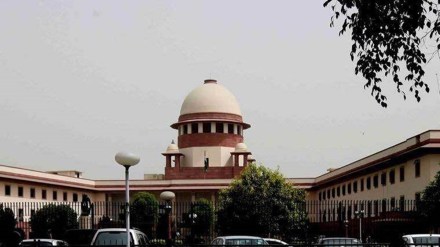The Jamiat Ulama-i-Hind, an Indian Muslim scholars’ body, has moved the Supreme Court, challenging the constitutionality of the conversion laws in various states of the country. The Public Interest Litigation filed on behalf of the organisation has challenged the Uttar Pradesh Prohibition Of Unlawful Conversion Of Religion Act, 2021, the Uttarakhand Freedom Of Religion Act, 2018, the Himachal Pradesh Freedom Of Religion Act, 2019, the Madhya Pradesh Freedom Of Religion Act, 2021 and the Gujarat Freedom of Religion (Amendment) Act, 2021.
The PIL, filed through Advocate Ejaz Maqbool, contends that the said Acts invade a person’s privacy by forcing them to disclose their faith. It further states that empowering family members to lodge an FIR in a matter of conversion act as a tool for “harassing the convert”. Alleging the misuse of the provisions by disgruntled family members, the petition cites a media report from 2020 claiming that 14 cases were registered within one month of the Uttar Pradesh Ordinance. Of these, only 2 were based on complaints by the victims while the rest were out of complaints by family members.
The petition also states that the Act be set aside on grounds of its definition of “allurement” which includes the phrase “undue influence”. The petitioners argue that the phrase is too vague and could “stifle religious preaching and even practice of religion” enshrined in Article 25 of the Constitution of India.
“Scrutiny by the state of such a personal decision is a grave assault on personal liberty of an individual and is violative of Articles 21 and 25 of the Constitution of India.”
The petition further claims that the Acts in question contradict the rule of burden of proof in criminal law. “The burden of proof in criminal cases is on the prosecution, and the presumption is that a person accused of committing an offence is innocent until proven guilty. However, the Acts proceed on the presumption that each religious conversion is illegal,” it states.
The PIL also highlights that provisions of Section 12 of the Himachal Pradesh Act, Section 13 of the Uttarakhand Act, Section 12 of the Uttar Pradesh Act and Section 12 of the Gujarat Act put the burden to prove that the conversion is not illegal on the person who has converted.
